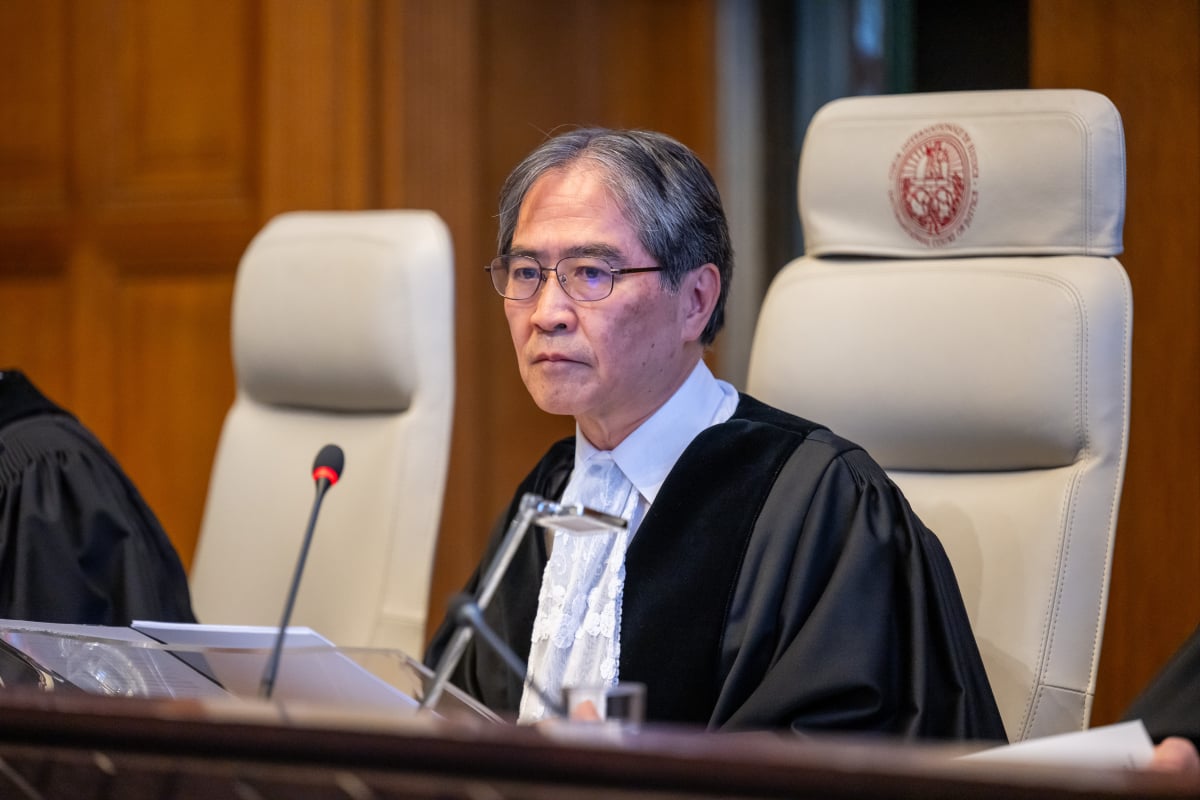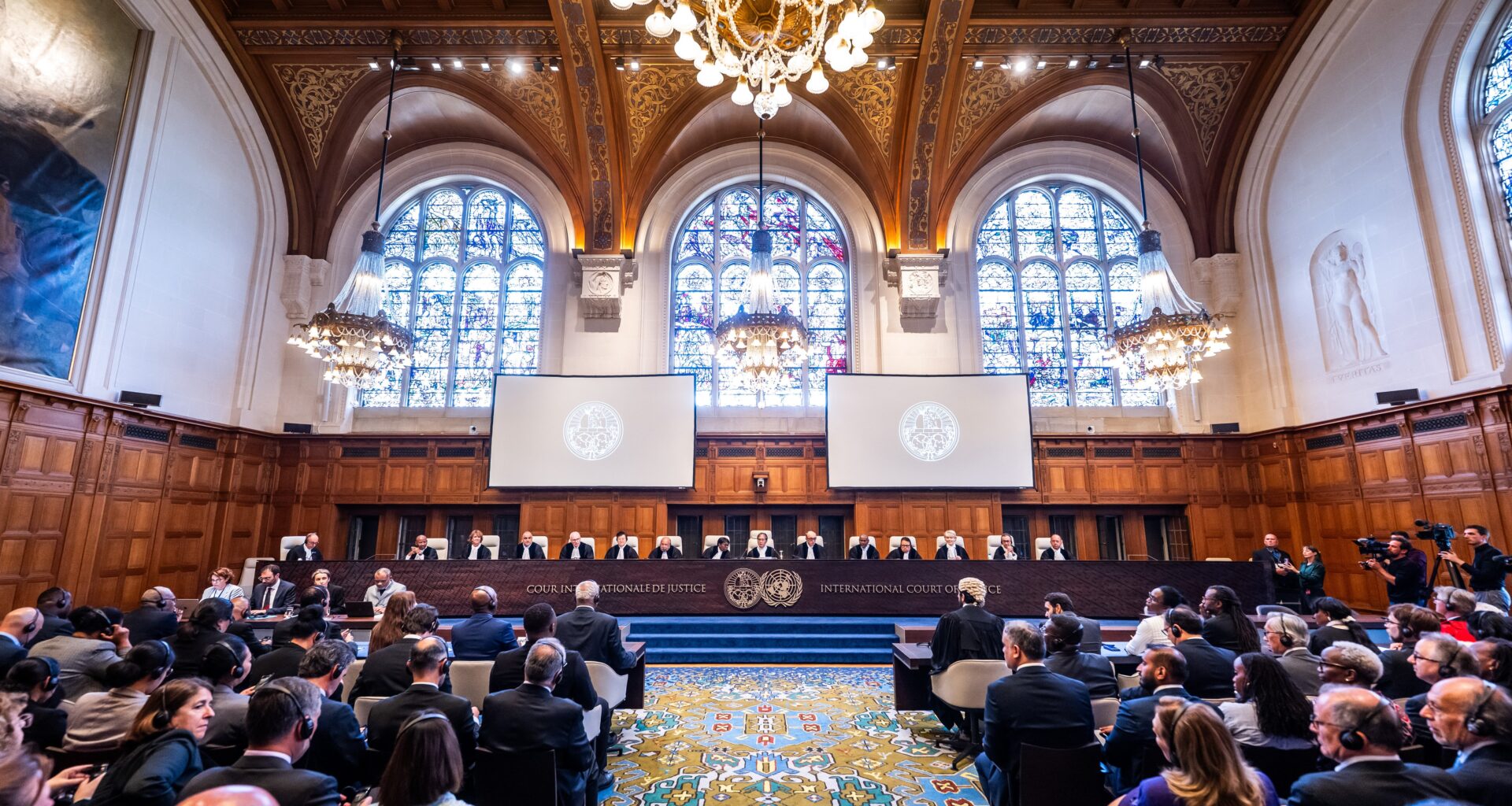A landmark finding from the International Court of Justice (ICJ) on Wednesday is reshaping international law by confirming that countries are legally bound to slash carbon pollution or risk paying billions in compensation to communities bearing the brunt of climate change.
David Boyd, an associate professor with the University of British Columbia and former UN Special Rapporteur on human rights and the environment, told Canada’s National Observer those findings “should send shivers down the spine” of the fossil fuel industry and governments that support it.
“It’s the clearest statement we’ve had from an international court that we have to get off fossil fuels,” he said. While the advisory opinion itself is non-binding, it is an authoritative statement on international laws which are binding on countries including Canada.
“Failure of the state to take appropriate action to protect the climate system from GHG emissions including through fossil fuel production, fossil fuel consumption, the granting of fossil fuel exploration licenses, or the provision of fossil fuel subsidies may constitute an internationally wrongful act which is attributable to that state,” Judge Iwasawa Yuji said Wednesday as he read the court’s advisory opinion.
The ICJ findings mean that countries’ legal obligations to respond to climate change reach further than their duties under climate treaties like the Paris Agreement, reflecting a strong rebuke of Canada’s position.
At the hearings in December, Ottawa argued that countries’ obligations to respond to climate change start and end with the UN Framework Convention on Climate Change and the Paris Agreement, agreed to in 1992 and 2015 respectively. The UN framework convention broadly commits countries to stabilize warming temperatures at safe levels, while the Paris Agreement more specifically aims to limit warming to as close to 1.5 C above pre-industrial temperatures as possible.
Those agreements commit countries to voluntary action, but do not effectively hold them accountable for failing to cut emissions at the pace and scale required to avoid catastrophic warming. Vulnerable countries, which have contributed the least to the crisis yet face the brunt of damages, argued this amounts to a violation of their human rights and undermines their sovereignty. Wealthy, high-emitting countries like Canada, however, did not want to see international law rewritten in a way that could hold them liable for climate damages — expected to total in the tens of trillions of dollars.
“Canada’s pursuit of mega fossil fuel expansion projects stands in stark defiance of the ICJ… This historic ruling is not merely a legal opinion; it’s a global mandate that shatters any illusion of continued fossil fuel impunity.”
The crux of Canada’s argument was that states cannot be held responsible for failing to address climate change because there is no international law recognizing it as a wrongful act.
That has now changed.
 ICJ Judge Iwasawa Yuji on July 23, 2025. Photo via ICJClimate reparations
ICJ Judge Iwasawa Yuji on July 23, 2025. Photo via ICJClimate reparations
In plain language, the ruling confirms that under international law, by which Canada is bound, countries are required to take more than voluntary action to address climate change. Major historic polluters like Canada are not just morally bound to cut emissions, but legally required to — or risk charges to compensate communities most harmed.
The economic costs from climate change are estimated in the hundreds of billions per year, with one study pegging the figure at US$400 billion per year by 2030, while another estimates it between US$290 billion and US$580 billion per year in developing countries alone.
Damages could reach US$38 trillion per year by 2050, according to the Potsdam Institute for Climate Impact Research.
The court’s findings suggest major polluters could be held liable for those damages. For context, Canada is responsible for about 2 per cent of global greenhouse gas emissions, which implies being responsible for $760 billion annually, based on $38 trillion in global damages per year by 2050.
“Today, we’ve entered a new era of climate accountability. The world’s highest court has made it clear: climate-harming activities violate international law and people’s rights,” said Elisa Morgera, UN Special Rapporteur on Climate Change and Human Rights in a statement. “Governments must cut emissions to protect people’s lives and they must provide redress for the damage they’ve already caused.”
‘Profound irresponsibility’
The findings could upend Prime Minister Mark Carney’s plans to nation-build. As recently reported by Canada’s National Observer, several fossil fuel megaprojects are actively being considered to receive the greenlight from the federal government — paving the way for their construction, which would boost global greenhouse gas emissions and inflict harm on communities here and abroad by violating international laws requiring the prevention of transboundary harm.
Among the projects Canada’s National Observer identified as priorities for Carney’s government, based on discussions with multiple government sources, are LNG Canada Phase 2, Cedar LNG and a potential revival of the Northern Gateway oil pipeline.
“Canada’s pursuit of mega fossil fuel expansion projects stands in stark defiance of the ICJ’s clear pronouncements,” said Harjeet Singh, a strategic advisor with the Fossil Fuel Non-Proliferation Treaty Initiative and member of the United Nations’ Technical Expert Group on Comprehensive Risk Management.
“This historic ruling is not merely a legal opinion; it’s a global mandate that shatters any illusion of continued fossil fuel impunity,” he said. “For Canada to advance LNG expansion or a major oilsands project while the world’s highest court demands states compel drastic and immediate action on the fossil fuel industry’s capacity to inflict further harm is an act of profound irresponsibility.”
Harjeet Singh, then-head of global political strategy with Climate Action Network International, attends loss and damage protest at the COP27 venue on Saturday Nov 12, 2022. Photo by: John Woodside/Canada’s National Observer
Boyd said the ICJ’s findings strengthen the case for a fundamental rethink of the Canadian economy, away from building more fossil fuel infrastructure.
“I know that’s a bitter pill for Mark Carney to swallow, but that’s a direct conclusion stemming from today’s ruling,” he said.
Global Affairs Canada did not return a request for comment by deadline.
Trickle down legal opinions
In Canadian courts, the ICJ ruling is expected to influence climate litigation.
Fraser Thomson, a lawyer with Ecojustice representing seven young people suing Ontario in a case called Mathur v. Ontario, said Canadian courts would be paying close attention to Wednesday’s opinion.
In Mathur v. Ontario, the seven youth are alleging that the Ontario government violated their Charter rights by weakening the province’s 2030 emission reduction targets from 37 per cent below 1990 levels by 2030 to 30 per cent below 2005 levels by the same year. In practice, the revised target would allow an additional 200 megatonnes of greenhouse gas pollution by decade’s end, comparable to 47 million gas powered cars driven for one year.
The youths’ argument is that a weakened target would dangerously expose people to higher levels of emissions, putting their health at risk while exacerbating extreme weather, and is therefore a violation of their Charter rights to life, security of person and equality.
That court battle is the first Charter-related climate case, and has bounced between courts for years.
In 2022, it was heard at the Ontario Superior Court, which did not find the decision was a Charter violation — but in October the Court of Appeal struck the lower court’s decision down and sent it back to be heard again.
Thomson said his clients will be back in court in December “with the wind in their sails with the ICJ’s opinion.”
“We believe it’s really a matter of time before a court in Canada finds there is a violation of our Charter rights when governments fuel the climate crisis,” he said.
Beyond the Mathur case, the ICJ’s advisory opinion is poised to influence thousands of climate related lawsuits around the world. The vast majority of cases are occurring in Global North countries. According to a Global Climate Change Litigation database maintained by Columbia law school’s Sabin Centre for Climate Change Law, there are 38 cases currently in Canadian courts.

